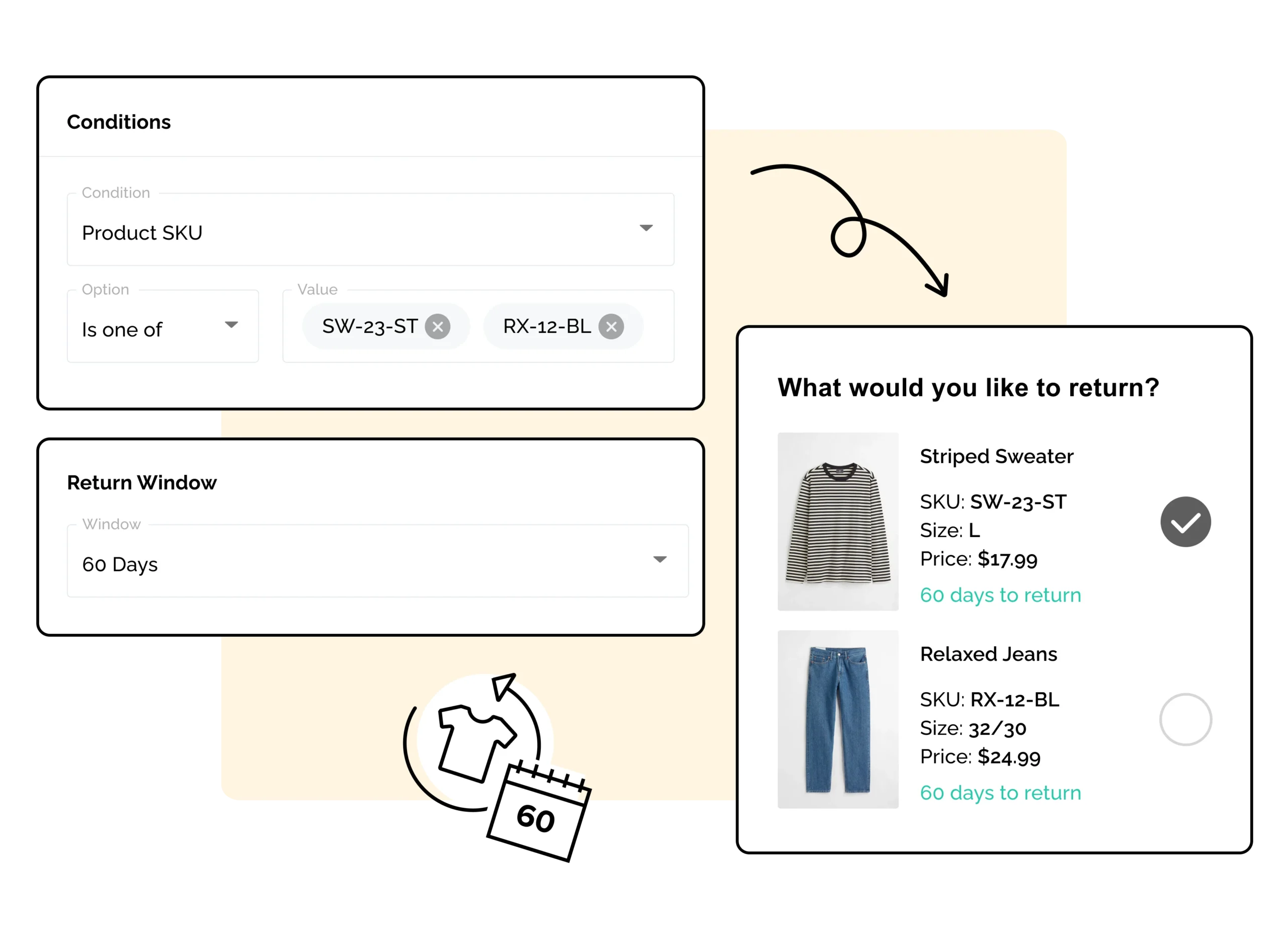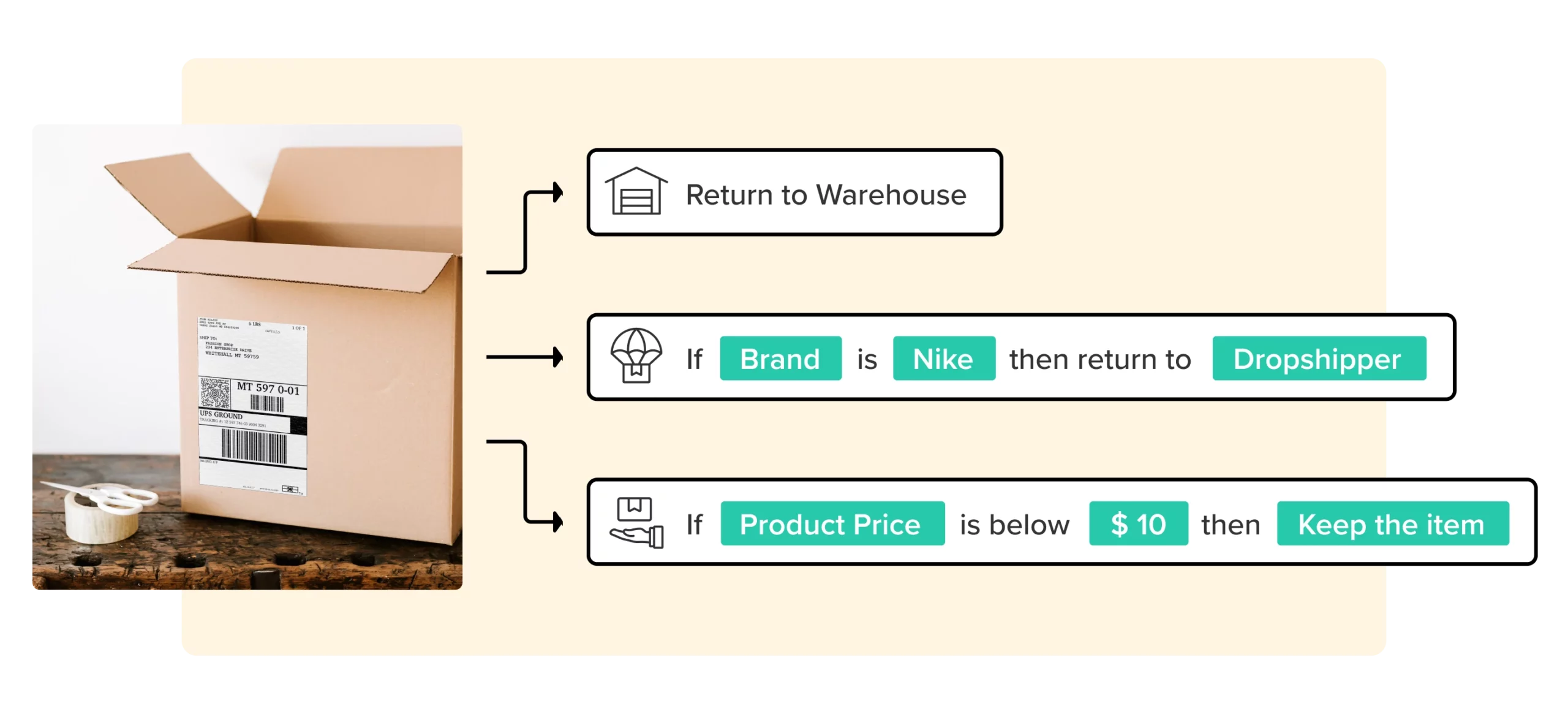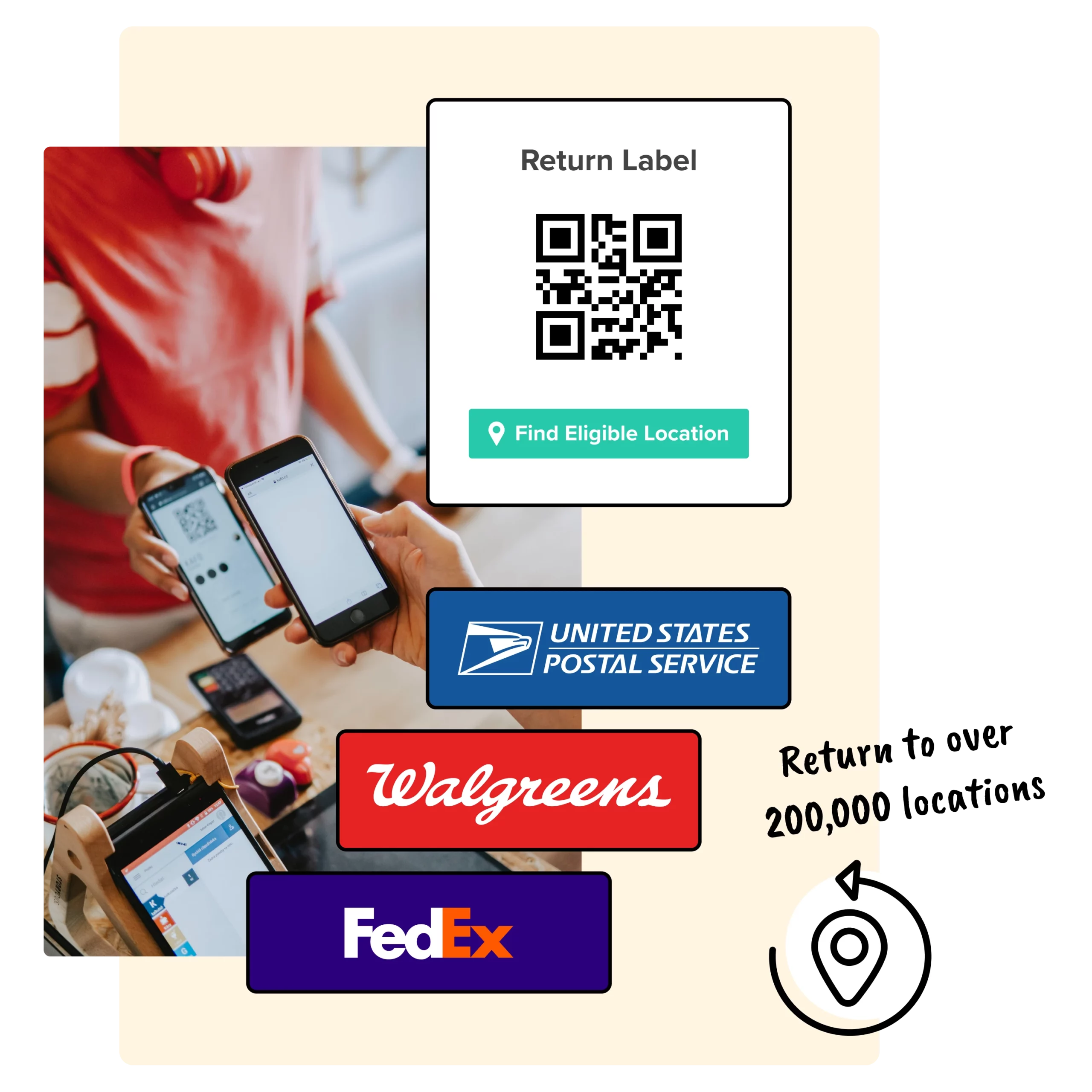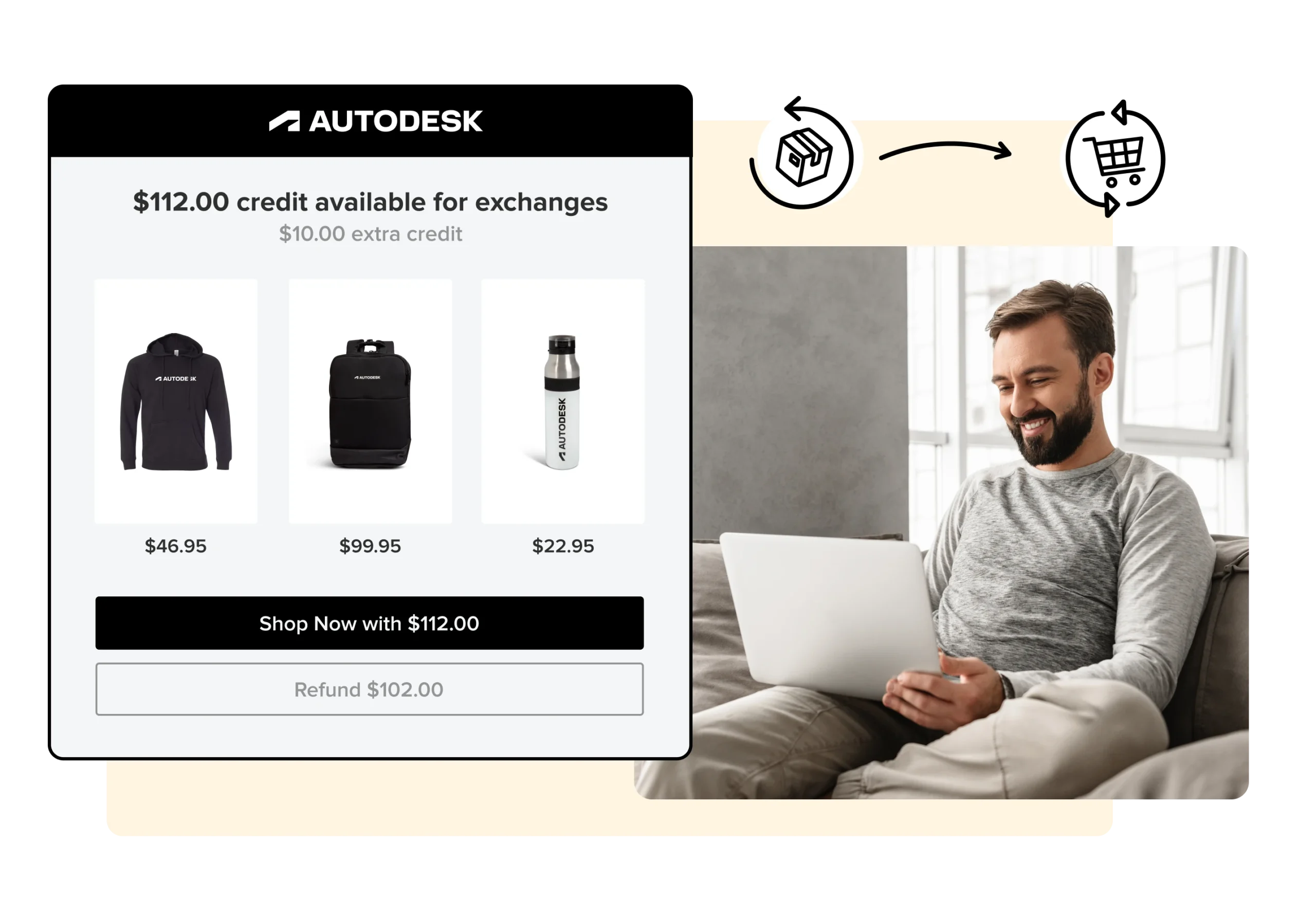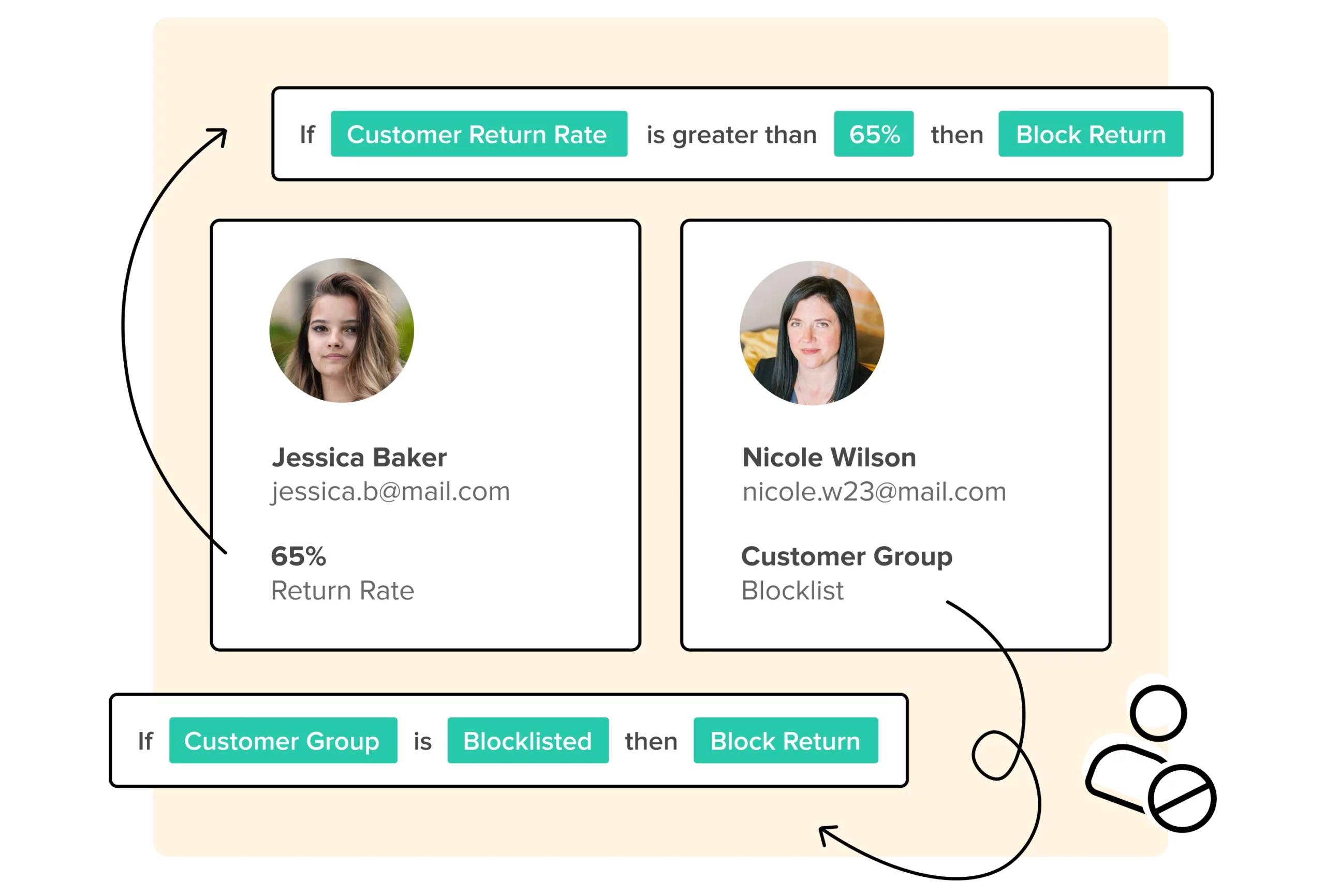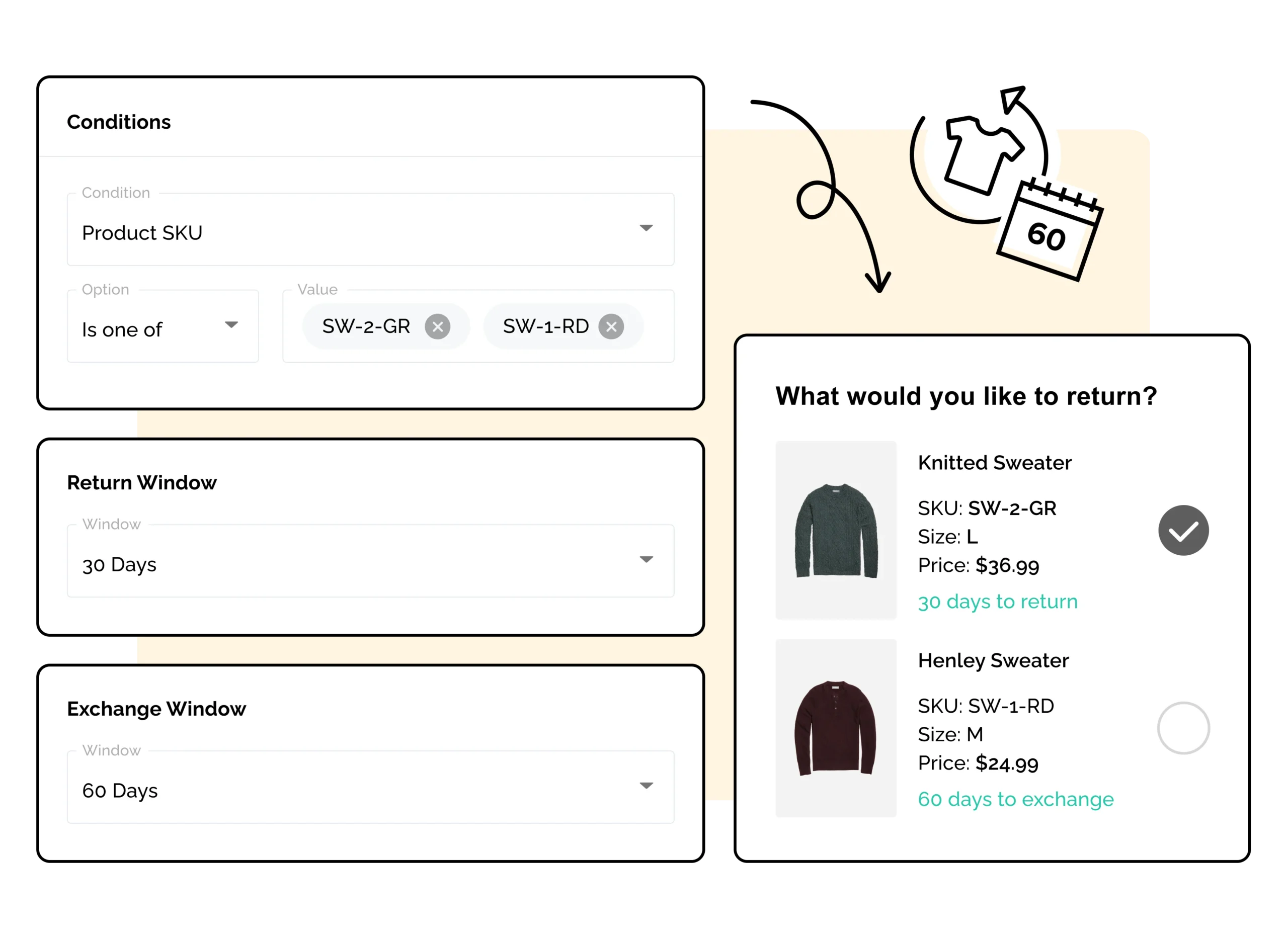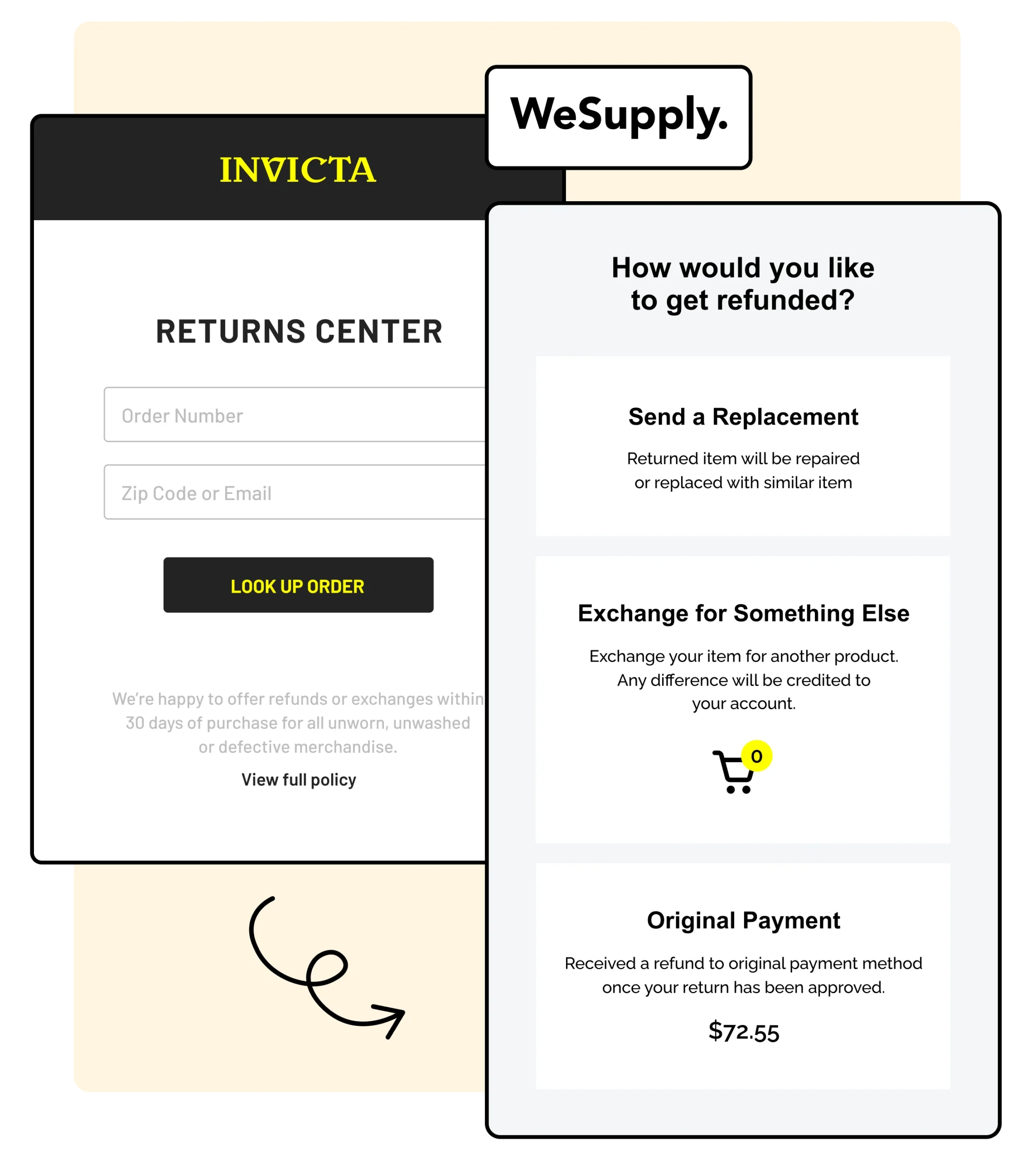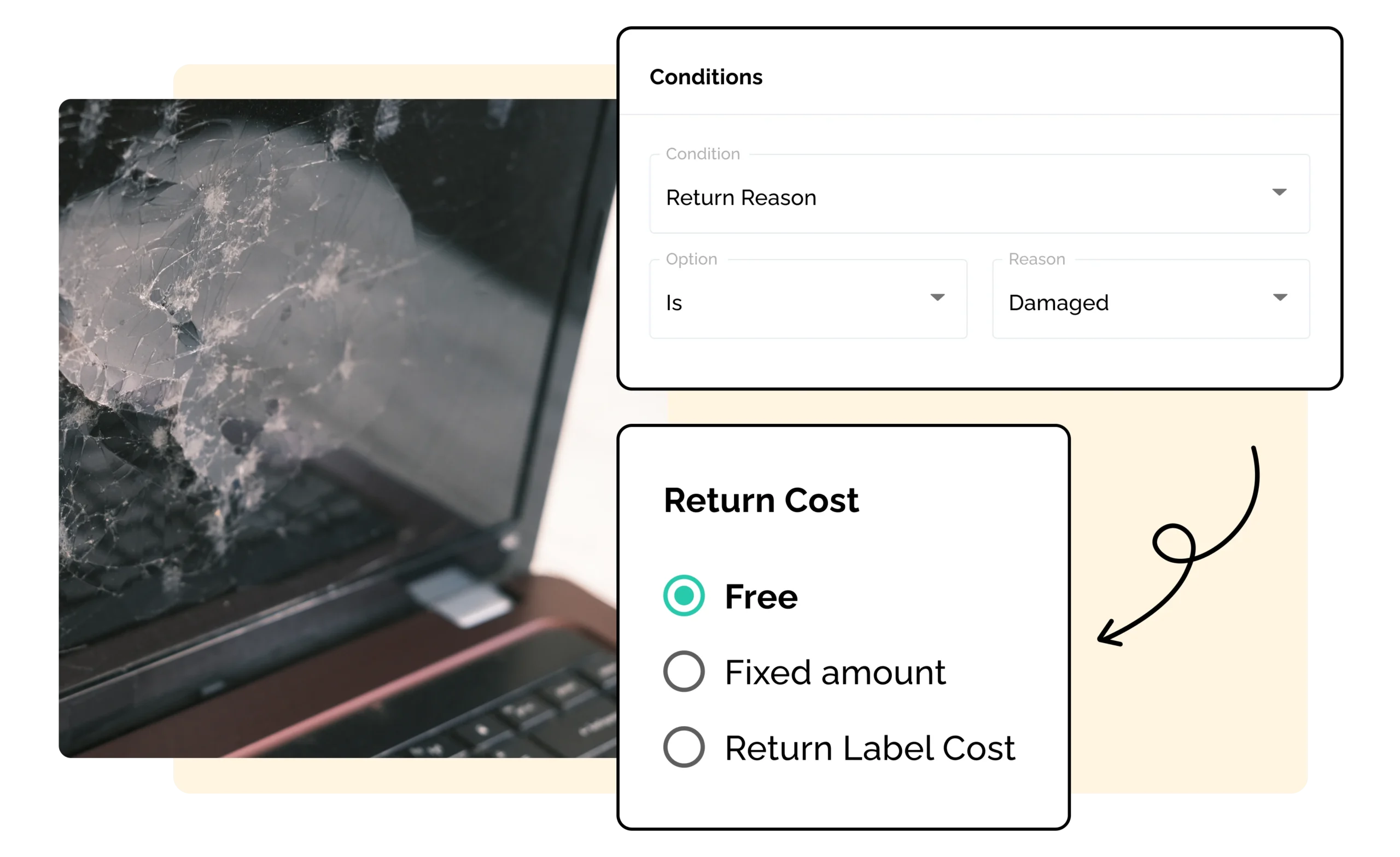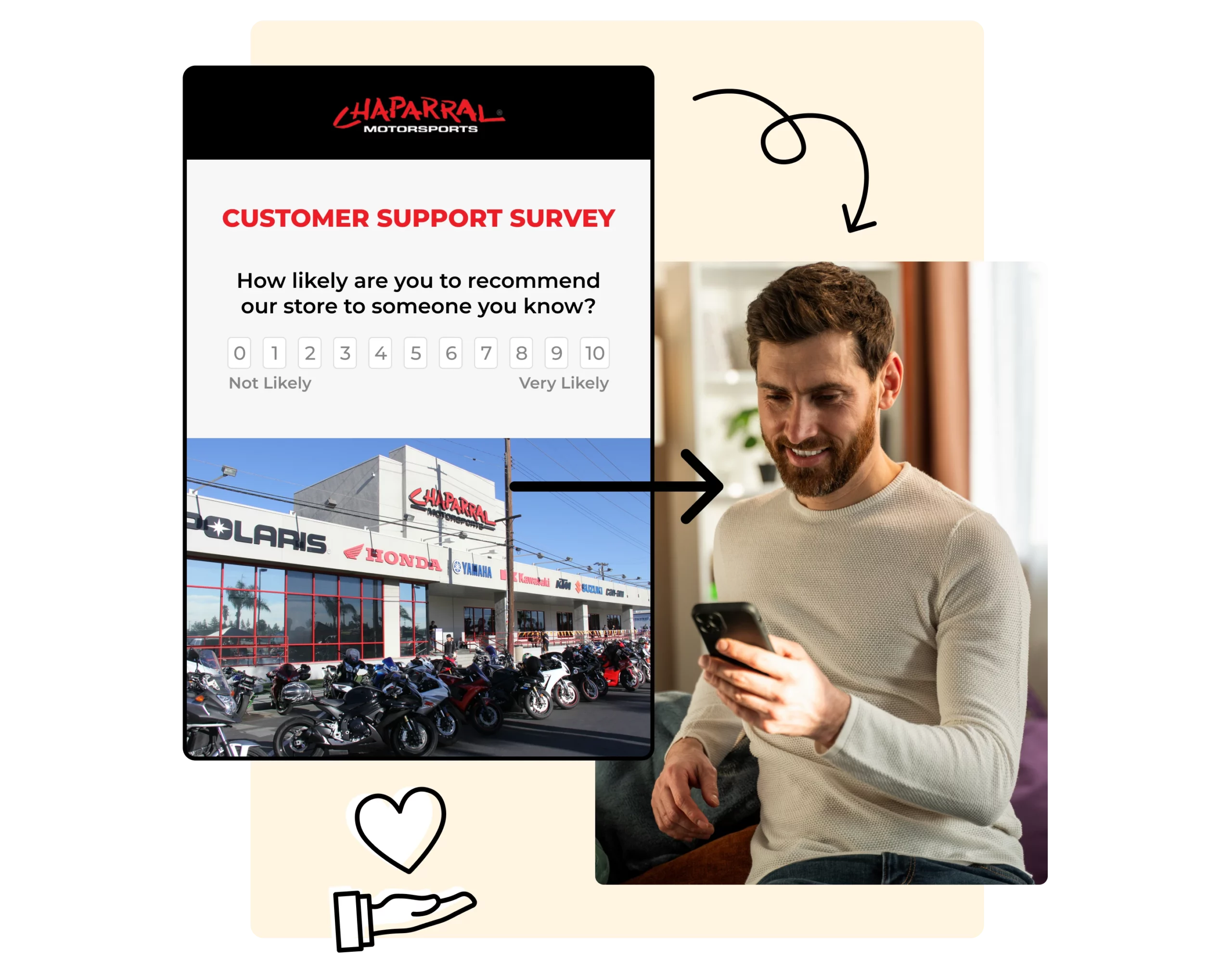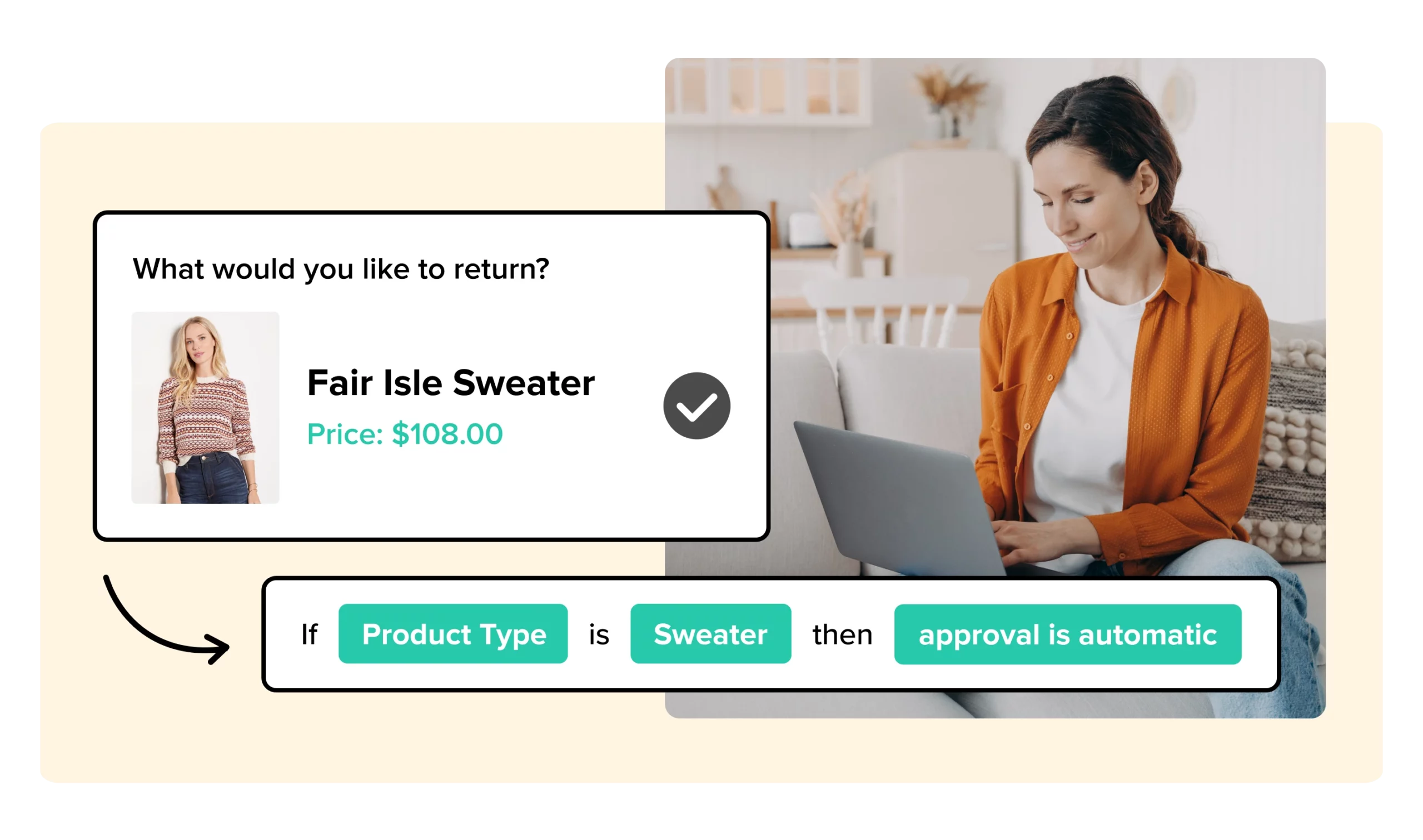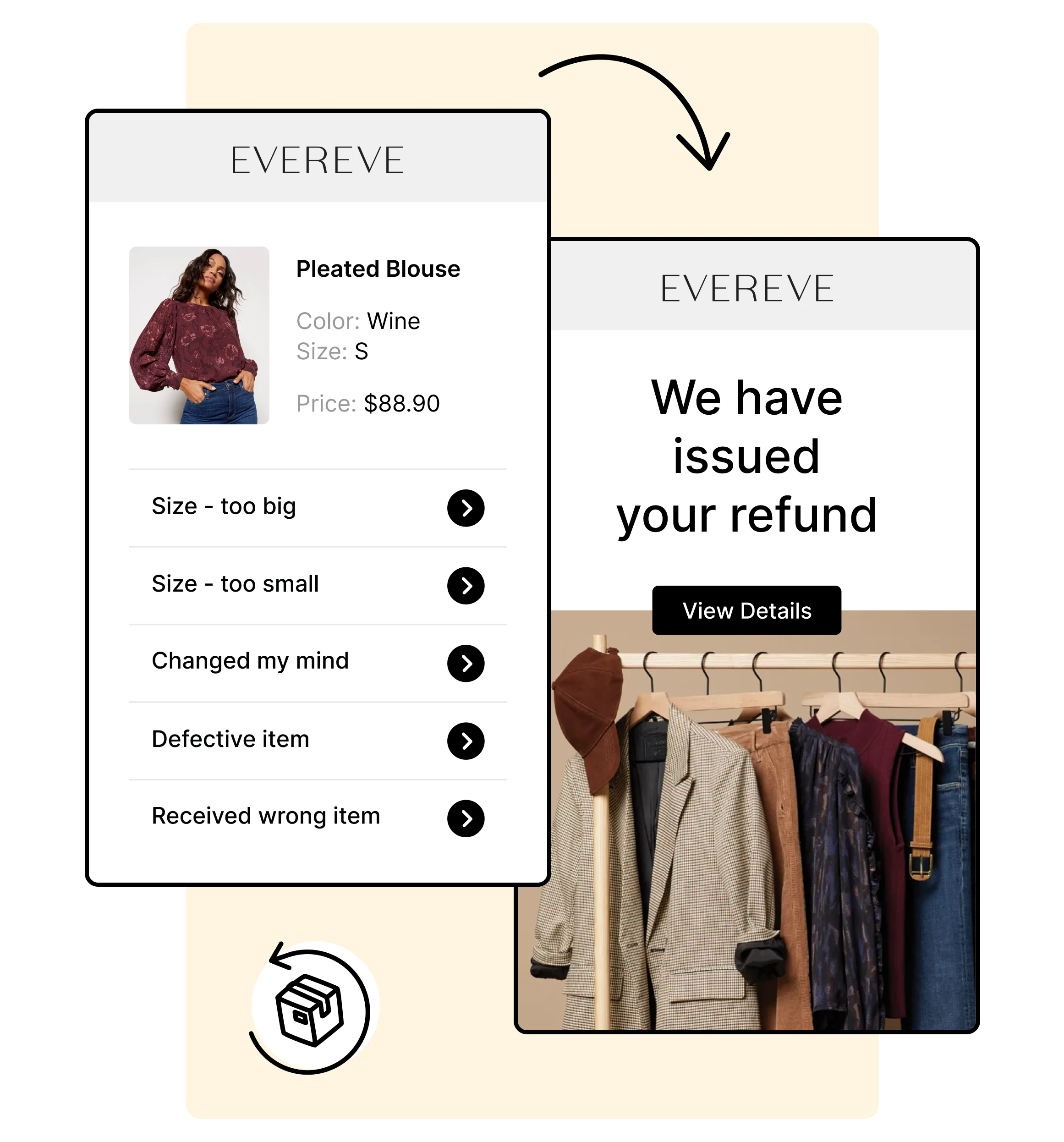Return Window: Customer Return Timeframe
Exploring the term ‘return window’ takes us to the heart of customer satisfaction and business policies. Essentially, it’s the period during which a purchase can be returned. It matters significantly to consumers who seek flexibility and assurance in their buying decisions, and it’s just as crucial for businesses aiming to build trust while effectively managing their logistics and inventory. This article delves into return windows, their influence on brand loyalty, and the balancing act businesses perform when setting these timeframes.
Key Takeaways
-
A strategic and transparent return policy, particularly the return window duration, plays a crucial role in building customer trust, influencing purchase decisions, and fostering customer loyalty within the realm of eCommerce.
-
Customizing return policies to align with specific customer needs, product types, and business capabilities, in concert with clear communication and streamlined processes, can increase customer satisfaction and impact the business positively.
-
With the continuous evolution of eCommerce, businesses must leverage analytics and technology to optimize return experiences, adapt to consumer behavior and feedback, and comply with legal and financial aspects to ensure a customer-centric return environment.
-
WeSupply streamlines retail returns with customizable policies, offering extended windows for holidays and specific brands. Its features include QR code return labels, in-store online purchase returns, and incentives for exchanges. The platform enhances customer experience through analytics-driven insights, fraud prevention, and a tiered return approach, balancing customer satisfaction with retail profitability. Boost your retail returns game with WeSupply – where flexibility meets customer satisfaction. Get started now!
Introduction to eCommerce Return Policies
eCommerce return policies set the tone for customer interaction, essentially forming the basis of a robust customer-business relationship. The way in which a business handles returns, provides refunds, or allows in-store returns can significantly impact the customer’s trust in the business. A transparent return policy, clearly stated on the order details page, can ease the customer’s concerns about online purchases and can foster customer loyalty.
Various factors come into play when designing a return policy – from deciding whether to charge a restocking fee to determining the conditions under which a full refund is provided.
Understanding the Role of Return Windows in Customer Trust and Business Success
Return windows, defined as the timeframe in which customers can return their purchases, are instrumental in cultivating customer trust and fostering business success. A longer return window can keep customers happy and instill in them a sense of security in their purchases. This, in turn, can lead to increased customer loyalty.
Contrarily, a shorter return window may not necessarily harm customer loyalty. When handled appropriately, it can even enhance customer satisfaction and trust.
Defining a Return Window
Within the sphere of eCommerce, return windows serve a purpose beyond merely providing a timeframe for returns. They are a strategic tool that can significantly influence customer purchasing decisions and brand loyalty. For instance, a lenient return window policy can bolster customer satisfaction by offering them a sense of security and flexibility.
On the other hand, a shorter return window can lead to increased customer loyalty if the returns process is managed efficiently and effectively.
The Impact on Customer Decisions and Brand Loyalty
Brand loyalty and customer decisions can be significantly influenced by the length of the return window. Customers can feel more confident in their purchases with a longer return window, as it provides ample time for them to determine whether the product fulfills their needs. This can result in increased customer satisfaction and, ultimately, greater loyalty towards the brand.
On the other hand, a shorter return window can prompt customers to make quicker purchase decisions, which can lead to increased sales for the business.
Crafting Your Store's Return Policy
Various factors need to be carefully considered when creating an effective return policy for your online store. These include the types of products sold, the specific needs and preferences of the customer base, and the business’s logistics capabilities. Establishing a return window that balances flexibility for the customer and control for the business is a strategic approach that can enhance customer satisfaction and loyalty, while also minimizing the impact of returns on the business’s bottom line.
Balancing Flexibility and Control: A Strategic Approach
It’s paramount to strike a balance between flexibility and control in a return policy. By offering a longer return window or more lenient return conditions, flexibility can be provided, while control can be upheld through the establishment of reasonable return limits and criteria.
A balance between these two aspects can lead to increased customer satisfaction and, ultimately, higher customer lifetime value.
Tailoring Return Windows to Your Products and Customer Base
Tailoring return windows to suit your specific products and customer base can be a strategic move towards creating a more customer-centric return policy. This involves analyzing customer data and feedback, understanding the logistics capabilities of the business, and aligning the policy with customer expectations.
A return window that takes into account the specific needs and preferences of the customers can lead to enhanced customer satisfaction and increased customer loyalty.
WeSupply: Tailored Policies for Every Season
WeSupply enables retailers to craft a nuanced return policy that significantly enhances the customer shopping experience, especially during the holiday season and for specific brand or vendor products:
- Extended Holiday Return Window: WeSupply offers an extended return window during holiday seasons to better accommodate customer needs, enhancing their shopping experience while considering competition, seasonality, and specific product categories to balance competitiveness with profitability.
-
Brand/Vendor Specific Return Windows: With WeSupply, retailers can adapt return windows to fit specific brands or vendors, providing flexibility and maintaining control over the return process. This approach allows for a tailored policy that respects manufacturers’ guidelines and addresses the unique nature of certain products, such as seasonal items.
Discover how WeSupply can transform your return process and elevate your customer service—book a demo today to see these features in action!
The Impact of Return Policies on Customer Behavior and Business Outcomes
Customer behavior and business outcomes can be significantly affected by the way a business manages returns. Customer trust can be built and repeat purchases promoted through a flexible return policy. Conversely, a strict return policy can dissuade customers from making purchases and damage customer loyalty.
Therefore, it is vital for businesses to carefully consider their return policies and how they can be tailored to meet customer needs while also protecting the business’s interests.
The Correlation Between Return Flexibility and Customer Lifetime Value (LTV)
Customer lifetime value (LTV) can be directly influenced by the flexibility of a return policy. A flexible return policy can build customer trust and encourage repeat purchases, leading to increased LTV.
By analyzing customer return patterns and feedback, businesses can tailor their return policies to enhance customer satisfaction and increase LTV.
WeSupply’s return analytics offer crucial insights into returns, directly enhancing customer lifetime value (LTV). By pinpointing frequently returned and exchanged items, and understanding return reasons, businesses can refine their processes and policies. This optimization not only reduces return rates but also boosts profit margins. Additionally, WeSupply aids in understanding the regional trends and the specific impact of returns on LTV, enabling targeted improvements that increase customer satisfaction and retention.
Industry Standards vs. Customized Return Windows
While it’s important to be aware of industry standards for return windows, it’s equally important to consider your specific business needs and customer expectations. Customizing return windows to suit your business model and customer base can provide a more personalized and satisfying return experience for customers. This can, in turn, foster customer loyalty and positively impact your business’s bottom line.
Benchmarking Against Industry Norms
Understanding industry norms for return windows can provide valuable insights for your business. These norms can serve as a benchmark for your own return policy, helping you to meet or even exceed customer expectations. However, it’s also important to consider your business’s specific needs and capabilities when setting your return window.
Customizing Return Windows Based on Your Business Model and Customer Expectations
While benchmarking against industry norms can be helpful, it’s also important to consider your specific business model and customer expectations when setting your return window. Customizing your return window to suit your products and customers can lead to increased customer satisfaction and loyalty.
This can, in turn, positively impact your business’s bottom line.
WeSupply enables businesses to customize their return windows in alignment with both their business model and customer expectations. By implementing brand or vendor-specific return windows, WeSupply offers the flexibility to adapt return policies to the unique characteristics of each brand, including seasonal variations. This tailored approach not only respects manufacturers’ guidelines but also enhances customer trust by reducing confusion and standardizing the return experience across various platforms. Ultimately, customizing return windows with WeSupply helps maintain a consistent customer experience, preventing potential sales losses and ensuring a level playing field for all retailers of a brand.
Streamlining the Return Experience
One of the key factors in creating a positive return experience for customers is to make the process as smooth and straightforward as possible. This involves clear and transparent communication about your return policy, including details such as the purchase date, as well as easy and convenient return options such as prepaid shipping labels and in-store returns.
By streamlining the return experience, you can enhance customer satisfaction and foster customer loyalty.
Enhancing Customer Satisfaction with Clear Communication on the Order Details Page
Clear and transparent communication about your return policy is crucial in creating a positive return experience for customers. This includes providing detailed information about your return policy on the order details page, as well as in confirmation emails and other customer communications.
By making your return policy easily accessible and understandable, you can increase customer trust and satisfaction.
WeSupply enhances customer satisfaction by providing a Branded Tracking Page that centralizes order management, creating a seamless and engaging post-purchase experience. This approach eliminates the confusion and hassle of using third-party tracking sites, allowing customers to easily check their order status directly on your branded page. By keeping customers informed with clear, consistent communication, WeSupply reduces support calls and strengthens brand loyalty. This unified experience not only adds value but also opens opportunities for additional revenue generation through a fully branded customer journey, from purchase to delivery.
Simplifying Returns with Prepaid Shipping Labels and In-Store Options
Another important aspect of streamlining the return experience is to make the process as easy and convenient as possible for customers. This can be achieved by providing prepaid shipping labels for returns, offering in-store return options for in store purchases, or including a gift receipt with the purchase. By ensuring a hassle-free shipping label process, customers are more likely to have a positive return experience.
By simplifying the return process, you can enhance customer satisfaction and foster customer loyalty.
WeSupply streamlines the return process for both customers and retailers, enhancing convenience and reducing costs with innovative solutions:
- Autogenerated QR Code Return Labels: Simplifies the return of online purchases by allowing customers to use a QR code for returns without the need for printing, thereby removing friction and improving the customer experience.
- “Buy Online, Return In Store” Option: Offers customers the flexibility to return online purchases in physical stores, enhancing convenience and encouraging in-store traffic.
These features make returns hassle-free for customers while providing significant benefits to retailers, including increased store visits and reduced logistics costs. Ready to simplify your returns? Book a demo with WeSupply today and transform your return process!
The Tiered Approach to Return Windows
A tiered approach to return windows is a strategic approach that involves offering different return windows based on customer segments or loyalty levels. This approach can incentivize customer loyalty, increase the likelihood of repeat purchases, and enable more effective inventory management.
By offering longer return windows for loyal customers and shorter return windows for regular customers, businesses can cater to different customer needs while also protecting their own interests.
Incentivizing Exchanges Over Refunds
Incentivizing exchange or store credit over refunds is a strategy that can enhance customer satisfaction and foster customer loyalty. By offering incentives for exchanges, businesses can:
-
Reduce the financial impact of returns
-
Keep their customers engaged
-
Increase customer lifetime value
-
Positively impact the business’s bottom line.
WeSupply encourages retailers to incentivize exchanges over refunds, effectively saving sales and increasing the average order value through the use of instant store credit. By rewarding customers who opt for instant store credit instead of direct refunds, WeSupply helps businesses retain revenue and foster customer loyalty. Offering refunds as store credits, gift cards, or coupon codes not only motivates customers to return and shop again but also strengthens the trust and relationship between the brand and its customers.
Handling Exceptions and Fraud Prevention Strategically
Managing exceptions and preventing return fraud are crucial aspects of return management. By setting clear and reasonable limits for returns, businesses can protect themselves against fraud while also meeting customer needs.
Furthermore, by handling exceptions in a fair and transparent manner, businesses can enhance customer trust and satisfaction.
WeSupply equips businesses with strategic tools to handle exceptions and prevent returns fraud, safeguarding the integrity of their operations. Recognizing that a small number of customers may attempt to exploit return policies, WeSupply’s intelligent fraud prevention system proactively identifies and blocks those seeking to abuse the system, whether for short-term use of products or out of sheer mischief. For retailers with existing “block lists” of customers, WeSupply seamlessly integrates these lists to automatically restrict or manually review returns from flagged individuals, ensuring trusted clients remain the focus while minimizing fraudulent activities.
Flexible Returns with WeSupply: A Tiered Approach
WeSupply adopts a tiered approach to return windows, enhancing customer loyalty by offering unparalleled flexibility. This system allows returns within 30 days, exchanges up to 60 days, and replacements or warranty claims for up to 90 days. By allowing exchanges even after the standard return window has expired, WeSupply ensures that customers always have options, encouraging repeat business and fostering a positive shopping experience.
Incentivize exchanges over returns
Book a quick call with our experts to see how WeSupply can help you save sales through exchanges and boost the average order value using instant store credit.
Navigating Legalities and Financial Implications
When crafting a return policy, it’s key to consider compliance with regional return laws and management of the financial implications of returns. It’s important for businesses to understand the legal requirements of return policies in their respective regions, as well as the financial impacts of returns on their business.
By balancing these considerations, businesses can create a return policy that is both legally compliant and financially viable.
Complying with Regional Return Laws and Financial Impacts
Complying with regional return laws is a crucial aspect of managing returns. Specific laws and regulations regarding returns exist in each region, and non-compliance can result in legal action and financial penalties.
Therefore, it’s important for businesses to understand and comply with these laws in order to protect themselves and their customers.
Balancing Costs: Refunds, Restocking Fees, and Shipping Charges
Managing the financial implications of returns involves balancing various costs, including cash refund, restocking fees, and shipping costs. Businesses can lessen the financial impact of returns on their operations by effectively understanding and managing these costs. This can involve offering store credit instead of cash refunds, charging restocking fees for certain items, or providing free return shipping.
WeSupply offers an integrated solution to optimize your return on investment (ROI) by meticulously balancing costs associated with refunds, restocking fees, and shipping charges. By leveraging advanced analytics and automated systems, it reduces operational expenses and enhances customer satisfaction, directly impacting your bottom line. This strategic approach ensures a more efficient and cost-effective returns management process. You can use our ROI Calculator to discover how WeSupply can transform your cost management strategy.
-
Refund Options: Offer refunds as store credits, gift cards, or coupon codes to incentivize repeat purchases and foster trust with customers.
-
Dynamic Return Shipping Fees: Implement a flexible return shipping fee policy based on the reason for return, charging customers for reasons like ordering the wrong size while offering free returns for damaged items or late arrivals.
-
Waived Return Fees for Damaged Products: Improve customer satisfaction by automatically waiving return and restocking fees for damaged items, simplifying the return process and meeting customer expectations.
-
Restocking Fees for Specific Products: Mitigate return costs by applying restocking fees for specific products through a SKU-based system, allowing precise control over which products incur fees and under what circumstances.
These features enable businesses to manage costs effectively while providing a fair and considerate return process for customers. Ready to streamline your returns and boost customer satisfaction? Get started with WeSupply today!
Adapting to Consumer Behavior and Feedback
Shaping return policies heavily relies on consumer behavior and feedback. By analyzing return patterns and customer feedback, businesses can tailor their return policies to meet customer needs and preferences. This can lead to increased customer satisfaction and loyalty, as well as improved business outcomes.
Analyzing Return Patterns and Customer Feedback as a Guiding Tool
Valuable insights for improving return policies can be gathered by analyzing return patterns and customer feedback. By understanding why customers return items and how they feel about the return process, businesses can make changes to their return policies that enhance customer satisfaction and increase customer loyalty.
At WeSupply, we prioritize data-driven decision-making to drive business success and enhance customer satisfaction. By analyzing return patterns and gathering customer feedback, businesses can gain valuable insights to refine their processes and deliver exceptional post-purchase experiences. Key features include:
- Returns Analytics: Gain insights into return behavior, including identifying the most returned products, reasons for returns, and serial returners, to optimize strategies and reduce return rates.
- Customer Satisfaction (CSAT) and Net Promoter Score (NPS): Easily track CSAT and NPS metrics to measure customer satisfaction and loyalty, enabling businesses to gauge performance and make informed improvements.
With WeSupply’s comprehensive tools, businesses can leverage analytics and feedback to continuously refine their operations and meet the evolving needs of their customers.
Leveraging Technology in Return Management
Advancements in technology now offer businesses the opportunity to automate and optimize their return processes. This can involve using analytics to understand return patterns and customer behavior, as well as implementing technology solutions to streamline the return process.
By leveraging technology, businesses can enhance the return experience for customers and improve their business outcomes.
Automating and Optimizing Return Processes with WeSupply
WeSupply revolutionizes returns management by automating and optimizing the entire process, saving valuable time for your team and improving efficiency. With WeSupply, you can automate the return process, streamline operations, reduce returns fraud, minimize human error, and collect valuable feedback and images. Our self-service returns feature makes it effortless for customers to return items without the need for customer support tickets or calls, speeding up the entire returns process and enhancing customer satisfaction.
Case Study: Evereve's Success in Turning Returns to Opportunities
The Evereve case study highlights the challenges faced in managing fashion industry orders and returns, including manual processes, lack of visibility, and customer service overload. The goal was to streamline returns and increase sales and loyalty. WeSupply’s solution involved automating returns processes and integrating various systems, leading to improved operations understanding. Evereve’s approach focused on proactivity, self-service, and return flexibility, resulting in enhanced customer satisfaction and loyalty. Through WeSupply Labs, clients could address issues independently, streamlining procedures and empowering customers. The outcome was reduced shipping costs, increased productivity, and overall improved performance for Evereve. Discover how Evereve transformed their returns process and boosted sales with WeSupply. Read the full case study now!
Combat inconvenience with proactivity & self service
Book a quick call with our experts to see how WeSupply can help you make returns easy for your customers with a beautiful, self-service solution that makes their experience easier while also providing new ways to lower costs and earn back revenue.
Conclusion: The Future of eCommerce Returns
Forecasting the future of eCommerce returns, further automation and personalization will likely be involved. With the continuous growth of eCommerce, businesses will need to continually refine their return policies and processes to meet emerging consumer needs and market changes. This will involve leveraging technology and analytics to streamline return processes, incentivizing exchanges over refunds, and handling exceptions strategically.
Predicting Trends and Building a Customer-Centric Return Environment
Businesses will need to anticipate trends and construct a customer-centric return environment to stay ahead of the curve as the eCommerce landscape continues to evolve. This will involve leveraging analytics to understand return patterns and customer behavior, as well as implementing technology solutions to streamline the return process.
By building a customer-centric return environment, businesses can enhance customer satisfaction and foster customer loyalty.
Adapting to Emerging Consumer Needs and Market Changes for Long-Term Success
Businesses will need to adapt their return policies and processes to accommodate emerging consumer needs and market changes to achieve long-term success in the evolving eCommerce landscape. This will involve customizing return windows to suit specific products and customer segments, incentivizing exchanges over refunds, and handling exceptions strategically.
By adapting to emerging consumer needs and market changes, businesses can enhance customer satisfaction and foster customer loyalty.
Summary
In conclusion, the management of eCommerce returns is a critical aspect of any online business. A well-crafted return policy can foster customer trust, promote customer loyalty, and drive business success. By understanding the importance of return windows, balancing flexibility and control, benchmarking against industry norms, streamlining the return experience, and leveraging technology, businesses can create a return policy that meets the needs of their customers and their business. As the eCommerce landscape continues to evolve, businesses will need to adapt their return policies and processes to meet emerging consumer needs and market changes.
WeSupply enhances the retail return experience by offering customizable return windows, including extended periods during holidays and for specific brands or vendors. This flexibility helps retailers balance competitiveness with profitability, while tailored policies respect manufacturers’ guidelines and address product uniqueness. The platform provides valuable return analytics to improve customer lifetime value, optimize return policies, and understand regional and product-specific trends. Features like autogenerated QR code return labels, “Buy Online, Return In Store” options, and incentives for exchanges over refunds streamline the return process, boost customer satisfaction, and encourage loyalty. WeSupply’s tiered return window approach offers varying options for returns, exchanges, and warranty claims, alongside strategic tools to manage costs and prevent return fraud, ultimately driving business success and enhancing the post-purchase customer experience.
Frequently Asked Questions
What is the meaning of return window?
A return window refers to the period of time during which a customer can return a purchased product for a refund or exchange. It is designed to allow customers to inspect the product and determine if it meets their expectations.
What is the return policy for at-home after 90 days?
At-home offers full refunds for unused items in original packaging within 60 days, or 90 days for Insider Perks members, when accompanied by proof of purchase and a valid ID. There is no return policy mentioned beyond 90 days.
What is the significance of return windows in eCommerce?
The significance of return windows in eCommerce lies in their ability to foster customer trust and business success. By offering a reasonable return timeframe, businesses can improve customer satisfaction and loyalty.
Can WeSupply extend the return window during holiday seasons?
Yes, WeSupply offers an extended return window during holiday seasons, allowing retailers to accommodate customer needs better and enhance the shopping experience.
How does WeSupply handle returns for specific brands or vendors?
WeSupply allows retailers to adapt return windows for specific brands or vendors, providing flexibility and control over the return process tailored to each brand’s unique characteristics.
How does WeSupply encourage exchanges over refunds?
WeSupply incentivizes customers to choose exchanges or instant store credit over refunds, helping retailers retain revenue and foster customer loyalty.
What is the tiered approach to return windows offered by WeSupply?
WeSupply adopts a tiered return policy, allowing returns within 30 days, exchanges up to 60 days, and replacements or warranty claims for up to 90 days, ensuring flexibility and customer satisfaction.



